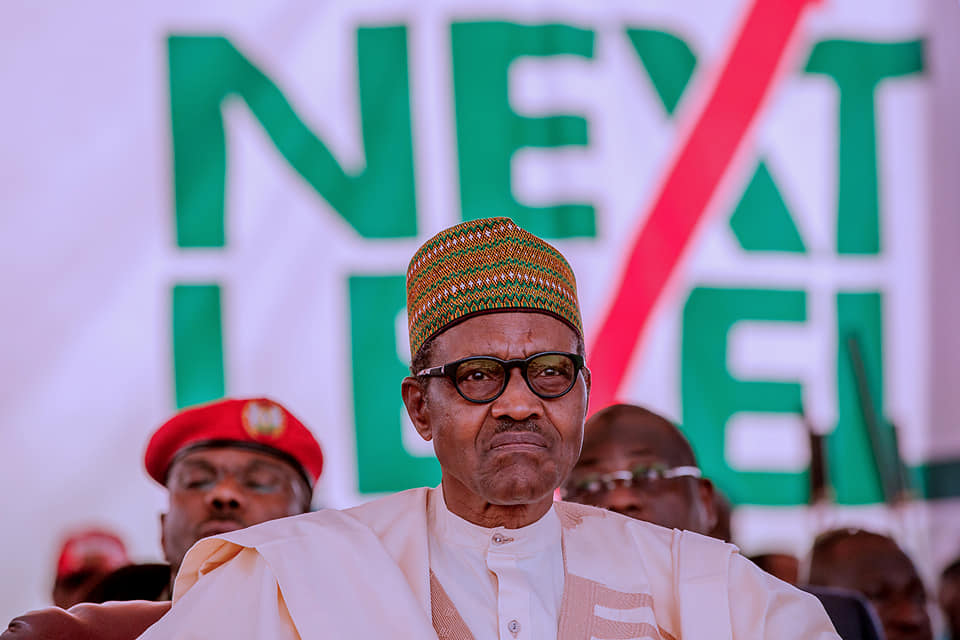Worried by the delay in the commencement of the implementation of the new National Minimum wage, President Muhammadu Buhari has directed the immediate conclusion of negotiation on the consequential adjustment between the government and the Joint National Public Service Negating Council to pay way for the implementation of the new wage regime.
The President has also directed the setting up of a Presidential Committee on Salaries and Wages which will be saddled with the responsibility of receiving complains and reviewing salaries and work schedule as well as assigning appropriate salaries to different categories of workers.
Minister of Labour and Employment, Senator Chris Ngige who disclosed this when he received the leadership and members of the Labour Correspondents Association of Nigeria (LACAN) in his office said the President has directed that a time limit be set for the conclusion of negotiation between government and workers.
Negotiation between the government and workers representatives have stalled severally as a result of both sides holding on to their presentation and refusing to shift ground.
At the last sitting of the negotiating team, it was agreed that the government team should take both presentation to the President for intervention, while a meeting was scheduled for September 4th, but was later rescheduled.
Ngige said the President was worried that the delay in concluding negotiation will lead to a huge backlog of arrears that many states may not be in a position to pay as the states were waiting for the conclusion of negotiation at the federal level.
The Minister disclosed the intention of government to reinvigorate factory inspectorate in the country to ensure that workers work in decent work environment saying “my department of inspectorate, as well as Employment and Wage, are going to do more. We are going to fund them so that we can star full factory inspection and make sure that nobody is under employed and that those in employment get what they deserved in the world of work so that they can have decent work.
“Part of it is the new minimum wage which the President signed in April. It is a pity that after signing it, May came and a lot of us were sent on compulsory leave. We are now coming back from leave. If you remember, a committee was set u and I was a member.
“When we left, the Permanent Secretary took our place and were negotiating with the Joint negotiating Council on the consequential adjustment. The states are waiting for that and it is not proper for us not to fast track that negotiation so that even the states will not have too much backlog to pay when the consequential adjustment is concluded.
“We have our own budgeted for in the 2019 budget and we are going to also budget for it in the 2020 budget. We are concerned about the states because some of the states are not proactive like us.
“So, the sooner we conclude at the federal level and the Joint Negotiating Councils in the states takes it from there and negotiate with the states, the better for everybody. If we spill this into next year, I am not sure how many states will be able to pay the backlog which will lead us to another round of negotiation.
“It is the determination of the President and this administration to fast track the negotiation on consequential adjustment. I have just received a correspondence from the Chief of Staff to the President and we are putting a deadline to that negotiation.
“We are fast-tracking it because the government will also want to put in place a Presidential Committee on Salaries and Allowances that will be able to take request after this consequential adjustment.
“That same committee will appraise the level of workload and evaluate all cadre of work and come out with salaries and allowances commensurate with each. It is one of the things that the government has decided and I have just seen the correspondence.
“When the details are out, we will let you know. That is to show workers both in the public and private sector that this government is labour-friendly and we want them to be in the decent work world.”
The Minister traced the recent security challenges in the country to increasing level of unemployment, saying “we have seen the symptom called unemployment which are very visible.
“When you hear about Boko Haram, that is one of the symptoms, when you hear about banditry and IPOB, it is one of the symptom of jobless people. So, for me, the President has decided that we must fight unemployment. We have to fight because the indices are terrible and that does not call for cheers. We have to decide and wear our thinking cap and take our country away from the doldrums.
“The President is committed to recreating the middle class in Nigeria. He is committed to lifting at least 100 million people out of poverty and the only way if for our economy to improve. When our economy improves, we would deal a big blow to poverty, social insecurity and also insecurity of lives and property. We have to make our country a better place because we cannot run away from that. We all have a collective responsibility.
“This Ministry will come out with many programmes that will help the government to recreate the middle class that has vanished from the country. We have a situation now where you have the top most rich who are very rich and those at the bottom. Even down there at the bottom, you still have people who cannot be compartmentalised into the middle class.
“Those who are work in Nigeria, the government is trying its best. We have many programmes that has kept people at work. We have refused redundancy being declared, we are fighting casualisation and we are not happy with contract appointment. We don’t want contract appointment in the private sector. We want people given their jobs with full benefit.”


